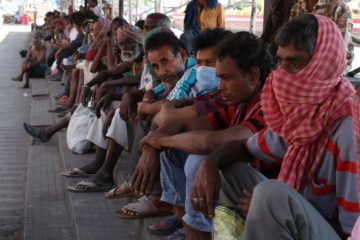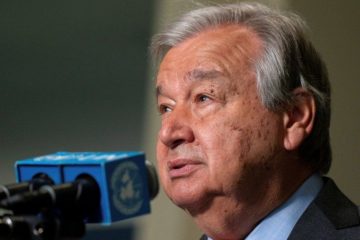More than three decades after leaving the African Union (AU), and subsequently having political and economic flirtations with the Arab League and the EU, Morocco has staged a return to the African regional political bloc in a seismic move that leaves the nationalist aspirations of Western Sahara, a disputed territory on the southern border of the North African country, heavily enshrouded in uncertainty.
Morocco’s readmission to the continental bloc is widely credited to the country’s aggressive economic diplomacy in recent times with regional neighbours, as well as a masterful diplomatic charm offensive orchestrated by Moroccan monarch King Mohammed VI, across and beyond the African continent in recent years. These efforts culminated in the resounding 39-9 vote in favour of the Kingdom’s readmission to the bloc at the body’s 28th Ordinary Summit at its headquarters in Addis Ababa, Ethiopia, last month.

The United States has reportedly hailed Morocco’s return to the AU as signalling a future of greater opportunities for cooperation for counter-terrorism operations in Africa, while one observer in India cheers the development as a potential boon for South-South economic cooperation.
Such encomia may however be disturbing music to the people of Western Sahara, a former Spanish colony that has seen a bitter decades-long political feud between Morocco and the Sahrawi Arab Democratic Republic (SADR), the de facto government of Western Sahara, over the sovereign status of the region. The admission of the SADR to the AU in 1984 (then known as the Organisation of African Unity) was the provocation that triggered Morocco’s exit from the bloc in protest that same year.
As Morocco reclaims its seat in the AU and sustains its political and diplomatic manoeuvres in the hopes of garnering broad regional support for its battle for control of Western Sahara, the political fate of the disputed territory becomes more shadowy.

Regional heavyweights South Africa and Algeria, longtime allies and supporters of Western Sahara’s quest forindependence, remain steadfast to a cause they regard as morally imperative, even as Morocco sways several former opponents of its struggle for control of the Western Sahara, like Nigeria and Ethiopia, to its camp.
In the foreseeable future, the tilt of the scales in the struggle for control of Western Sahara looks to depend ever more on the diplomatic acumen of Morocco and the power and commitment of Algeria and South Africa, unflappable Western Sahara allies whose own historical battles against colonialism and racism do no little to explain their stance on the issue. Moreover, the resolve of African countries to find viable solutions to the secessionist aspirations of the several separatist movements in countries across the continent will also be crucial.
Whether Morocco’s return to the AU will turn the tide in its favour, or whether it will be an ill-fated move that rekindles the embers of anti-colonialist sentiments in Africans and galvanises support for the self-determination of Western Sahara and other separatist movements on the continent, remains to be seen. It is currently a puzzle that only time can best resolve.


